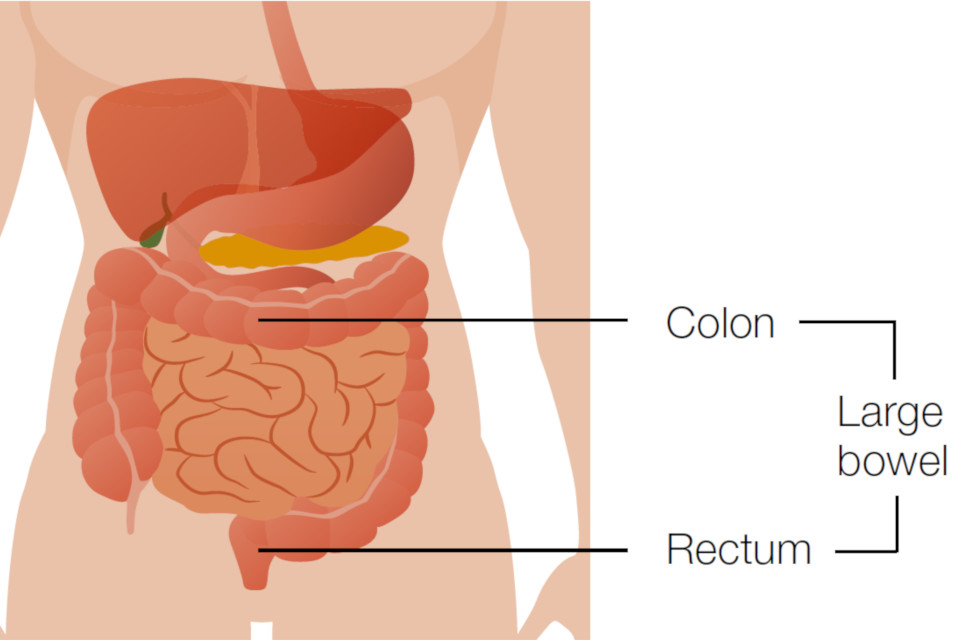The NHS Bowel Screening Programme offers a home test kit for screening to all adults aged 60 to 74 every 2 years. People over 75 or over can request screening every 2 years by phoning the helpline. Screening saves lives by discovering cancer earlier (before symptoms develop) when it is more easily treated.
For more information please visit https://www.nhs.uk/conditions/bowel-cancer-screening/ or contact the National Bowel Screening helpline on 0800 707 6060. We do encourage you to do this screening test when you receive one.
If you have hearing or speech difficulties you can use the Relay UK service to contact us. Dial 18001 then 0800 707 60 60 from your textphone or the Relay UK app.
How the bowel works
The bowel is part of your digestive system. It takes nutrients and water from food and turns what is left into poo (also known as faeces, stools or bowel motions). As illustrated below, the colon and rectum make up the large bowel.

Bowel cancer
Bowel cancer is also known as colon, rectal or colorectal cancer. Sometimes the cells that make up the bowel grow too quickly and form a clump of cells known as a bowel polyp (some types of polyp are called an ‘adenoma’). Polyps are not bowel cancers but they can sometimes change into a cancer over a number of years.
Risks of developing bowel cancer
Everyone, whatever your sex, is at risk of developing bowel cancer. Things that can increase your risk include:
- getting older (8 out of 10 people diagnosed with bowel cancer are over 60)
- not being active enough
- being overweight
- a diet high in red and processed meat and low in fibre, vegetables and fruits
- smoking
- drinking too much alcohol
- having type 2 diabetes
- having inflammatory bowel disease (ulcerative colitis or Crohn’s disease)
- a family history of bowel cancer
How bowel cancer screening works
We send you an invitation letter with information about bowel cancer screening. The information is to help you decide whether to take part. Then we send you a faecal immunochemical test, or ‘FIT kit’ for short. It detects blood in your poo (blood you would not notice by eye). We look for blood because polyps and bowel cancers sometimes bleed. Finding blood does not diagnose bowel cancer but it means you need further tests (usually a bowel examination).
Most people’s screening result shows they do not need any further tests.
Last Update Jan 2022